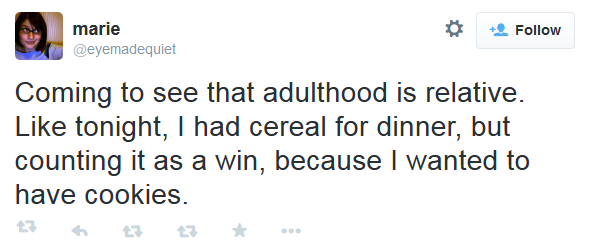Weekend ahoy! Here’s some worthwhile reading, if you can find the time.
You’ve probably been following the rumbling fallout from George Oborne‘s departure from the Telegraph and the questions this has raised about the thickness of the walls between editorial and advertising in media organisations. In all the column inches that have been and are yet to be generated about that, I hope we don’t lose sight of the smaller picture: the importance of adherence to the house style guide. Tom Chivers, another ex-Telegraph writer noted that the “Telegraph style guide explicitly bans the use of “refute” to mean “deny” but the paper’s statement on Osborne uses it”. Other eagle-eyed folks noticed that the BBC had carefully corrected this oversight on the part of the Telegraph in a story published later in the day. Nothing quite like a good usage spat, eh?
Of course these days you have to be careful not just what you do and don’t publish in an extremely well known broadsheet newspaper, but even what you tweet.
In the beginning, Twitter was supposed to be a vessel for fleeting thoughts. People posted about their lunches, their sports teams, the news of the day. But because tweets are public and permanent by default, all of those ephemeral tweets congealed over the years into a kind of global permanent record. Now, everything the vast majority of Twitter’s 288 million monthly active users have ever tweeted is searchable, indexable, and usable against them in courts of law or public opinion.
‘Meet the tweet-deleters: people who are making their Twitter histories self-destruct’
The air was muggy and smelled faintly of cedar. Japanese commuters glided past on bikes. A flock of girls dressed in school uniforms and frilly knee socks passed us going the other way. Nobody stared, because that would be rude, but they definitely looked. We were not just foreign, but we were also accidentally louder than everyone else, if only because everyone else seemed utterly silent.
‘Meet the Unlikely Airbnb Hosts of Japan’
A first, essential step toward progress is to stop the bad practices that lead to misinforming and misleading the public. I offer several practical recommendations to that effect, drawing upon research conducted for this report, as well as decades of experiments carried out in psychology, sociology, and other fields.
How Lies Spread Faster Than Truth: A Study Of Viral Content
Yet my aim here is to offer a window into my view of a repugnant European capitalism whose implosion, despite its many ills, should be avoided at all costs. It is a confession intended to convince radicals that we have a contradictory mission: to arrest the freefall of European capitalism in order to buy the time we need to formulate its alternative.
Yanis Varoufakis: How I became an erratic Marxist
Worth Pondering
Eye Candy

An Extraordinary Macro Timelapse of Aquatic Wildlife by Sandro Bocci
Totally Confused
Photoshop at 25, expanding cows, toys are fun, creepy Facebook and random’s not so random after all
Finally, the British Library has digitised over four million endangered photos. Much more of this please.
Yours etc., @loughlin
Think you know someone who might like to receive more emails like this? Then forward this one on to them so they can read the words below.
Hey! Want to be part of something hip and retro like a mailing list? Of course you do? Then head on over here to subscribe. I promise not to spam you or sell your email address to Facebook. Or Google. Or Twitter. Or anyone else at all.
Follow @WantYouToKnowHQ on Twitter for more bits and bobs.


